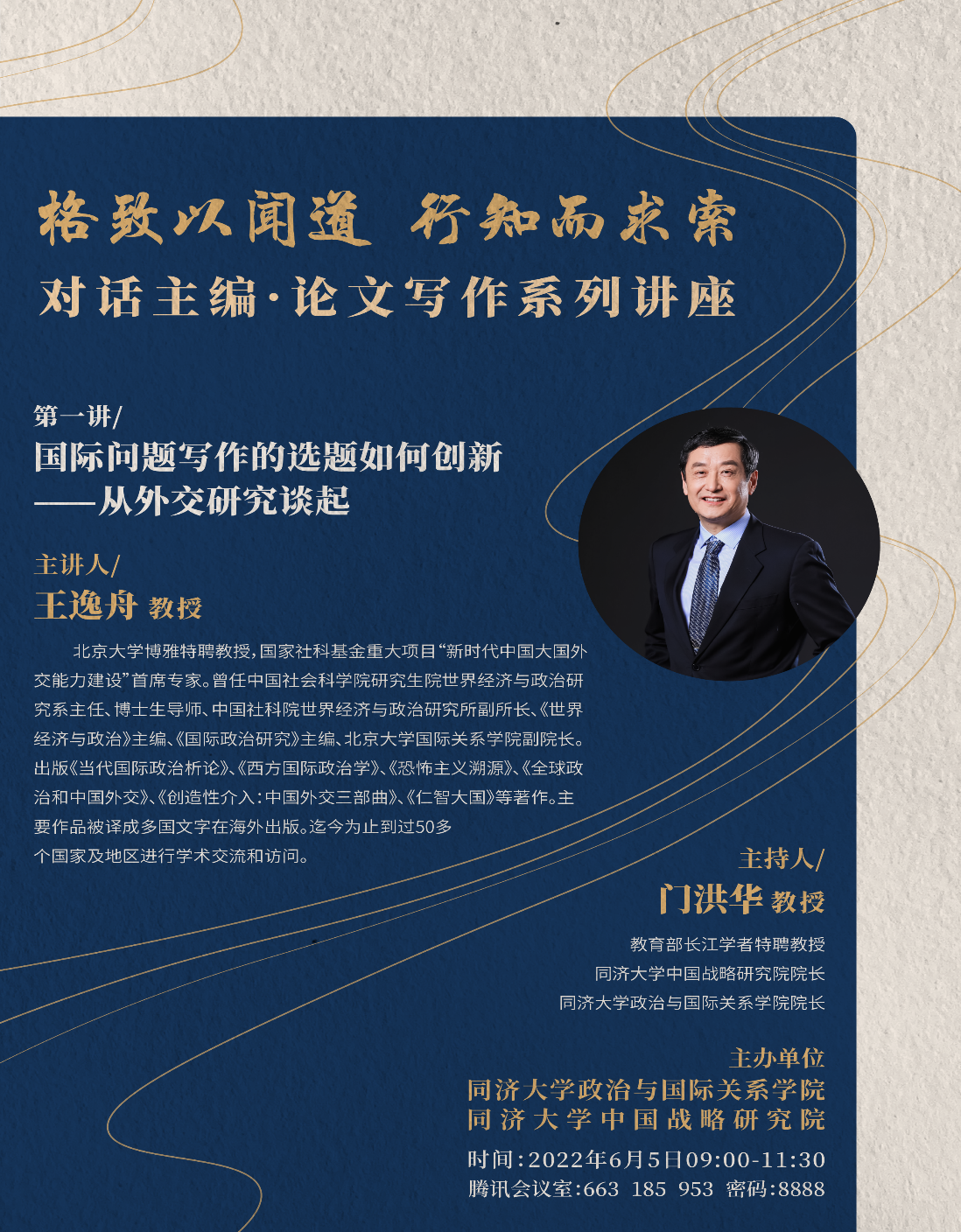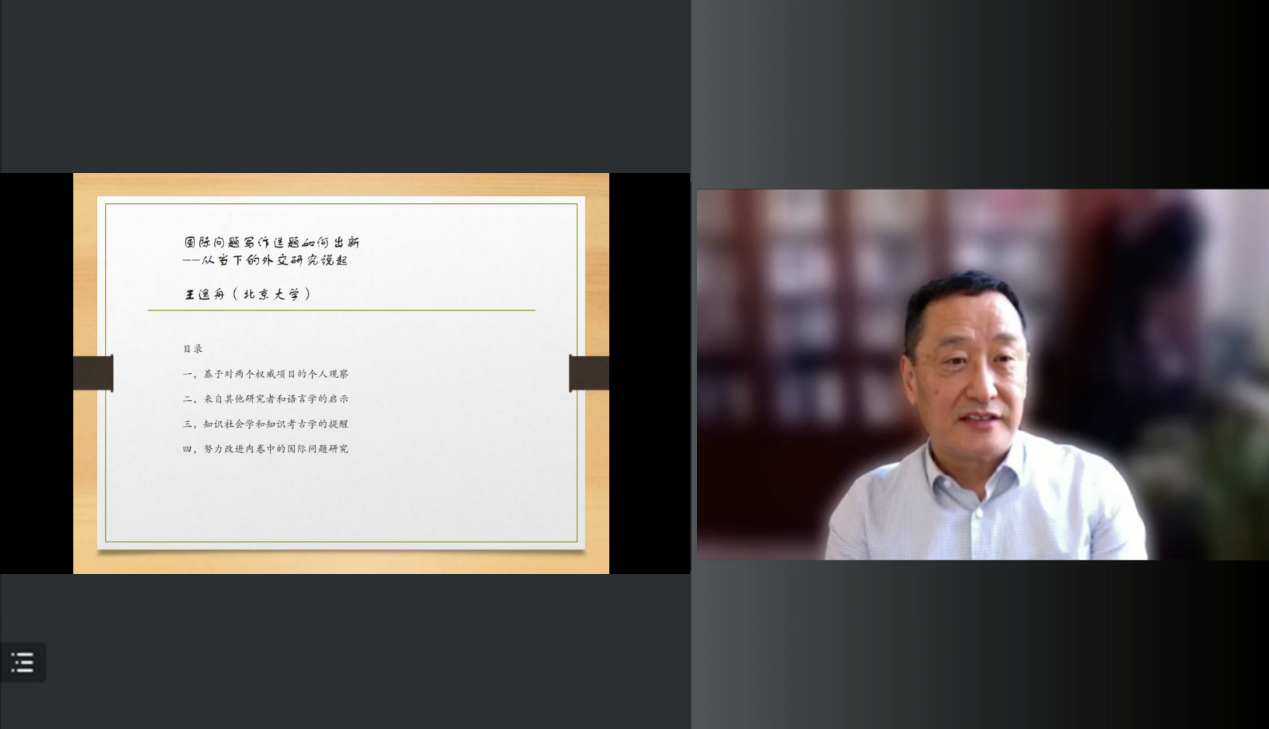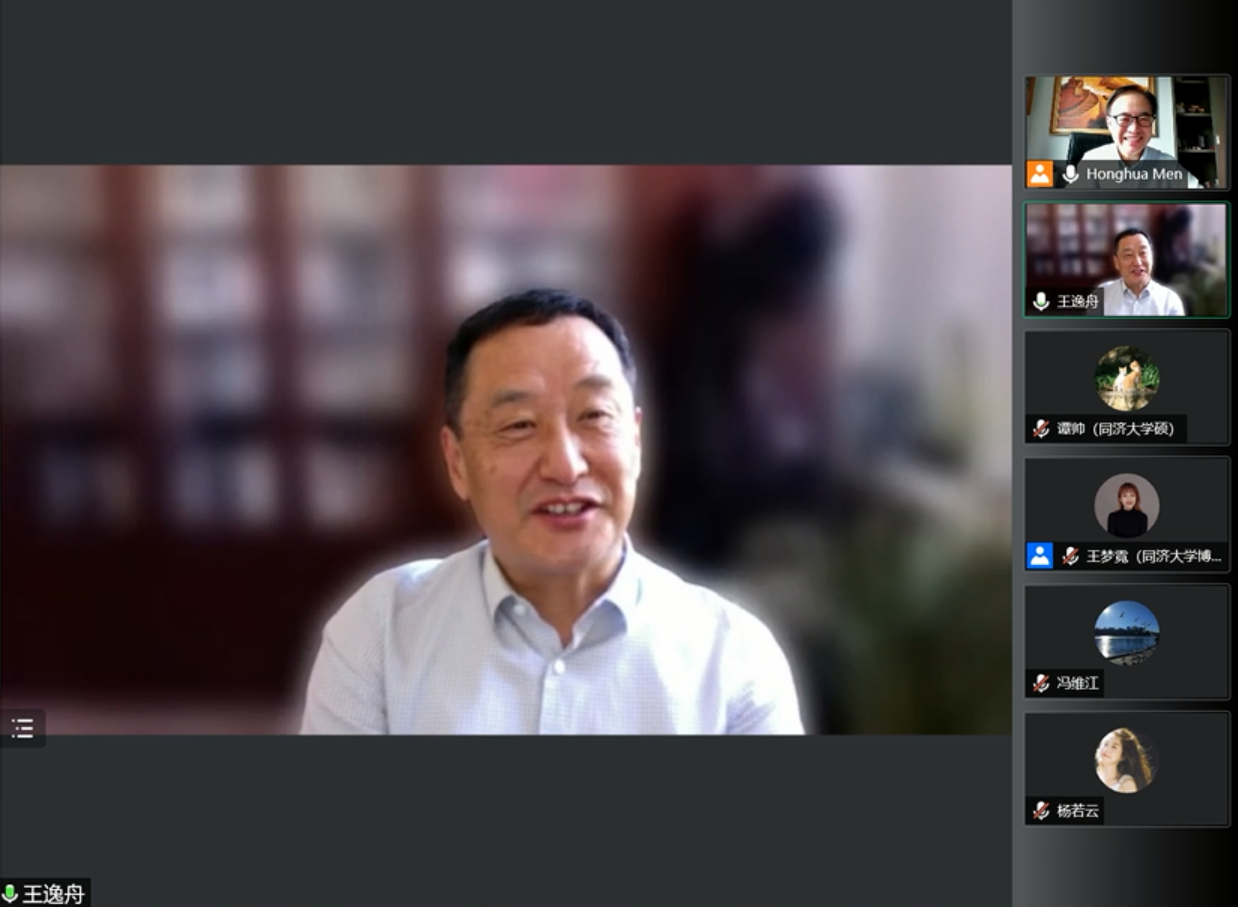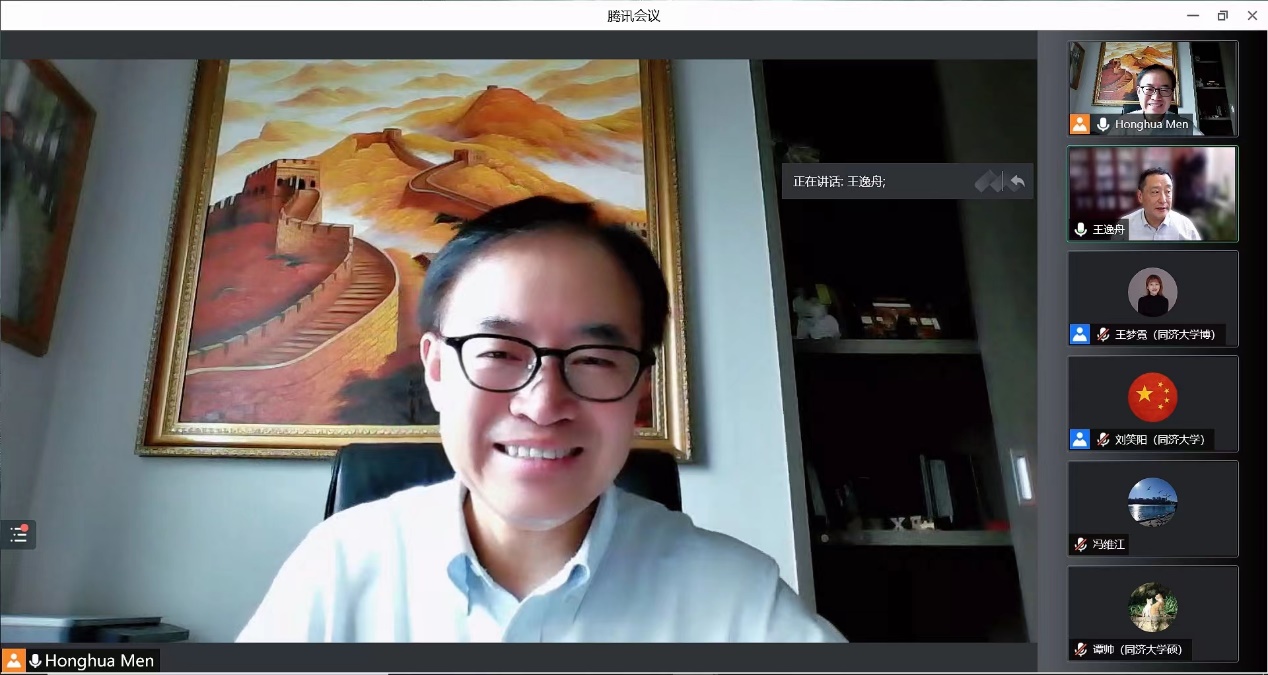News



Prof. Wang Yizhou's Lecture on “How to Write Innovative Articles on International Issues” successfully held
On the morning of June 5, 2022, the first lecture of the "Dialogue with the Chief Editor - Academic Writing" series, hosted by the School of Political Science & International Relations / the Institute for China & World Studies of Tongji University, was successfully held. Professor Wang Yizhou, a Boya distinguished professor at Peking University and Chief Editor of The Journal of International Studies, was invited to give a lecture on "How to Write Innovative Articles on International Issues - From Diplomatic Studies". More than 700 students and teachers from 78 universities at home and abroad attended this webinar, which was moderated by Professor Men Honghua, a distinguished professor of the Changjiang Scholars Program, President of the Institute for China & World Studies and Dean of the School of Political Science & International Relations of Tongji University.

Prof. Wang’s lecture was composed of four parts: "Personal Observations Based on Two Authoritative Projects", "Enlightenment from Other Researchers and Linguistics", "Inspirations from the Sociology of Knowledge and the Archaeology of Knowledge", and "Improving International Studies in Involution".

First of all, Prof. Wang analyzed the Guide to Research Topics on International Issues of the National Social Sciences Fund of China (NSSFC) and the papers reprinted in China’s Foreign Affairs, the information center for social sciences of the Renmin University of China (RUC). Through a review, he found that realistic, short- and medium-term, and policy-oriented topics occupy the vast majority of these two projects, while long-term and fundamental topics and topics of scientific rationality are rarely seen, presenting the characteristics of homogenization of topics, tracking of current affairs, political orientation, and lack of individuality.
Secondly, Prof. Wang talked about the enlightenment from other research scholars and linguistics for research and writing on international issues. Taking the research of Prof. Zhuang Liwei and Dr. Jin Lei as examples, Prof. Wang emphasized the necessity to expand the existing research agenda and enhance the cultural consciousness of "unity in diversity". On this basis, he continued to discuss how international studies should draw on other disciplines such as ecology, medicine, and linguistics, with the aim of opening up the mind to present the beauty of international studies and the vagaries of diplomacy.
Next, Prof. Wang analyzed the role and implications of the sociology of knowledge and the archaeology of knowledge in and for the diplomatic and international studies. The sociology of knowledge teaches us to look at the research objects and methods in an evolutionary improvement way, and the diplomatic archaeology, on the other hand, makes us consciously borrow the various microscopes and telescopes in archaeology to classify and identify the "fragments", "sites", and related hypotheses of diplomatic phenomena.

Finally, Prof. Wang discussed how to improve international studies in involution. Through a survey of the historical evolution of diplomatic patterns, he found that the increasing number of diplomatic discourse makers has witnessed the trajectory of multiple international and domestic actors. He pointed out that developing diplomatic knowledge with a three-dimensional, dynamic, and extensible attitude can help cultivate a new diplomatic aesthetics that shapes the creativity of academic research and brings into play the researchers’ initiative, thus effectively reducing or even eliminating the existing involution in international studies.
In the interactive session, Prof. Wang had an academic exchange of both theoretical and practical significance with the teachers and students attending the lecture, giving insightful answers to questions on the art of diplomatic language, the balance of policy research and academic research, the access to materials for unpopular topic selection, international security research, and traditional Chinese diplomatic philosophy.

After the keynote speech and the interactive session, Prof. Men first expressed his gratitude and respect to Prof. Wang by quoting "Master is good at guiding me step by step, enriching my knowledge with all kinds of classics, and restraining my words and actions with all kinds of etiquette, so that it is impossible for me to stop studying". Prof. Men concluded that Prof. Wang's lecture is comprehensive and inspiring, covering all fields in the past, present and future, and it not only teaches us the research path, the innovation in topic selection, and the method of academic writing, but also demonstrates Prof. Wang's sentiment, vision and mind as a well-known scholar and his earnest expectation for the future generations. The world is now in an era of profound changes, and we should write papers based on a sound knowledge system, with both our motherland and the world in mind. We look forward to meeting and learning from Prof. Wang face-to-face at Tongji after the lockdown due to the pandemic.